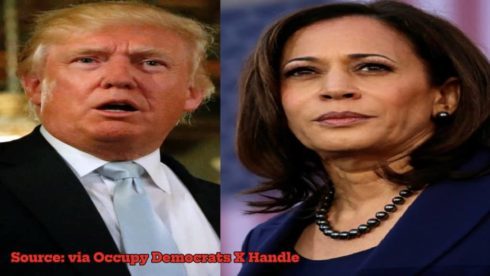Vice President Kamala Harris has achieved a significant political victory, with recent polling data revealing a substantial surge in her favorability among key voter demographics. According to the latest Gallup poll, Harris’ overall favorability among American adults has jumped from 34% in June to an impressive 47% in August, marking a substantial 13-point increase.
This surge in popularity comes at a crucial time, as the political landscape continues to evolve ahead of the upcoming election cycle. The significant boost in Kamala Harris’ favorability ratings could have far-reaching implications for her political future and the Democratic Party’s strategies moving forward.
Breaking Down the Numbers: Democrats and Independents Show Strong Support
The poll results reveal a particularly striking increase in Kamala Harris’ popularity among Democrats and Independents. Her favorability among Democratic voters has soared from 77% to an overwhelming 93%, indicating near-unanimous support within her party. Meanwhile, her standing among Independents has also seen a significant uptick, rising from 28% to 41%.
These numbers suggest that Kamala Harris is successfully consolidating her base while also making inroads with crucial swing voters. However, it’s worth noting that her favorability among Republicans remains unchanged at 5%, highlighting the deep partisan divide that continues to characterize American politics.
Factors Contributing to Harris’ Rising Popularity
Several factors may be contributing to Kamala Harris’ growing popularity. Her increased visibility in key policy discussions and her role in addressing critical national issues have likely played a part in shaping public perception. Additionally, her campaign’s efforts to connect with voters and articulate a clear vision for the future seem to be resonating with a broader audience.
As Kamala Harris continues to roll out policy proposals and engage with voters, there’s potential for her favorability to climb even higher. Her team’s strategic messaging and outreach efforts appear to be paying dividends, allowing more Americans to form positive opinions about the Vice President.
Implications for the Political Landscape
The surge in Kamala Harris’ popularity could have significant implications for the political landscape. As a key figure in the Democratic Party, her rising favorability may boost the party’s overall standing and influence its strategy going into future elections. It also positions Harris as a formidable potential candidate for future political aspirations.
Moreover, this trend could impact the dynamics of political discourse, potentially shifting the focus of debates and policy discussions. As Kamala Harris gains more support, her policy positions and priorities may gain increased attention and influence within the national political conversation.
Challenges and Opportunities Ahead
Despite the positive trend in her favorability ratings, Kamala Harris still faces challenges. The unchanged favorability among Republicans indicates a persistent partisan divide that may be difficult to bridge. Additionally, maintaining this momentum and translating it into tangible political outcomes will require continued effort and strategic planning.
However, the current surge also presents significant opportunities. With growing support among Democrats and Independents, Kamala Harris is well-positioned to play a more prominent role in shaping party policy and strategy. This increased popularity could also enhance her influence on key issues and legislation, potentially leading to more effective governance and policy implementation.
Potential Impact on Future Elections
As the political landscape continues to evolve, Kamala Harris’ rising favorability could have far-reaching effects on future elections. If this trend continues, it could strengthen the Democratic ticket in upcoming races and potentially influence voter turnout and engagement.
Furthermore, Kamala Harris’ growing popularity may impact the strategies of both major parties. Democrats may seek to leverage her appeal to energize their base and attract independent voters, while Republicans may need to reassess their approach to countering her influence. As we move closer to future election cycles, all eyes will be on Harris to see if she can maintain and build upon this surge in popularity.














